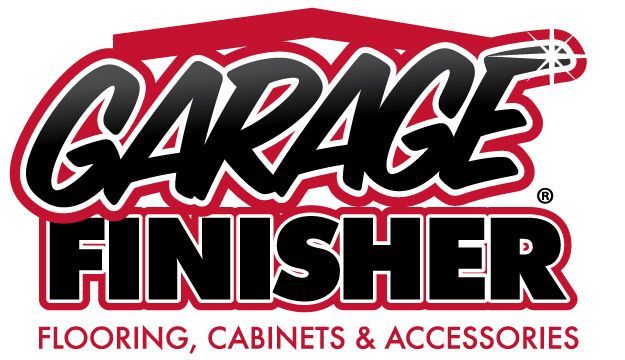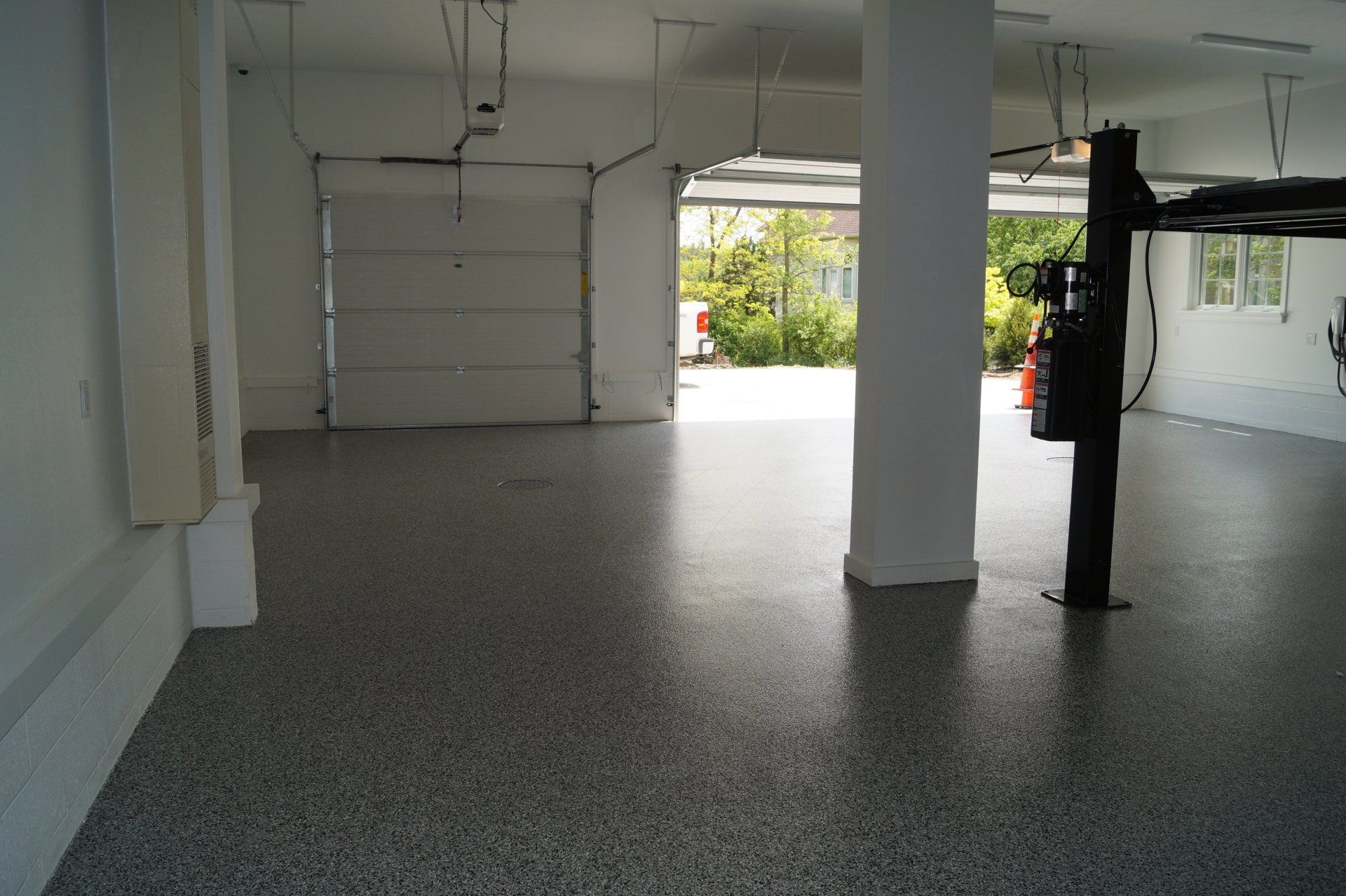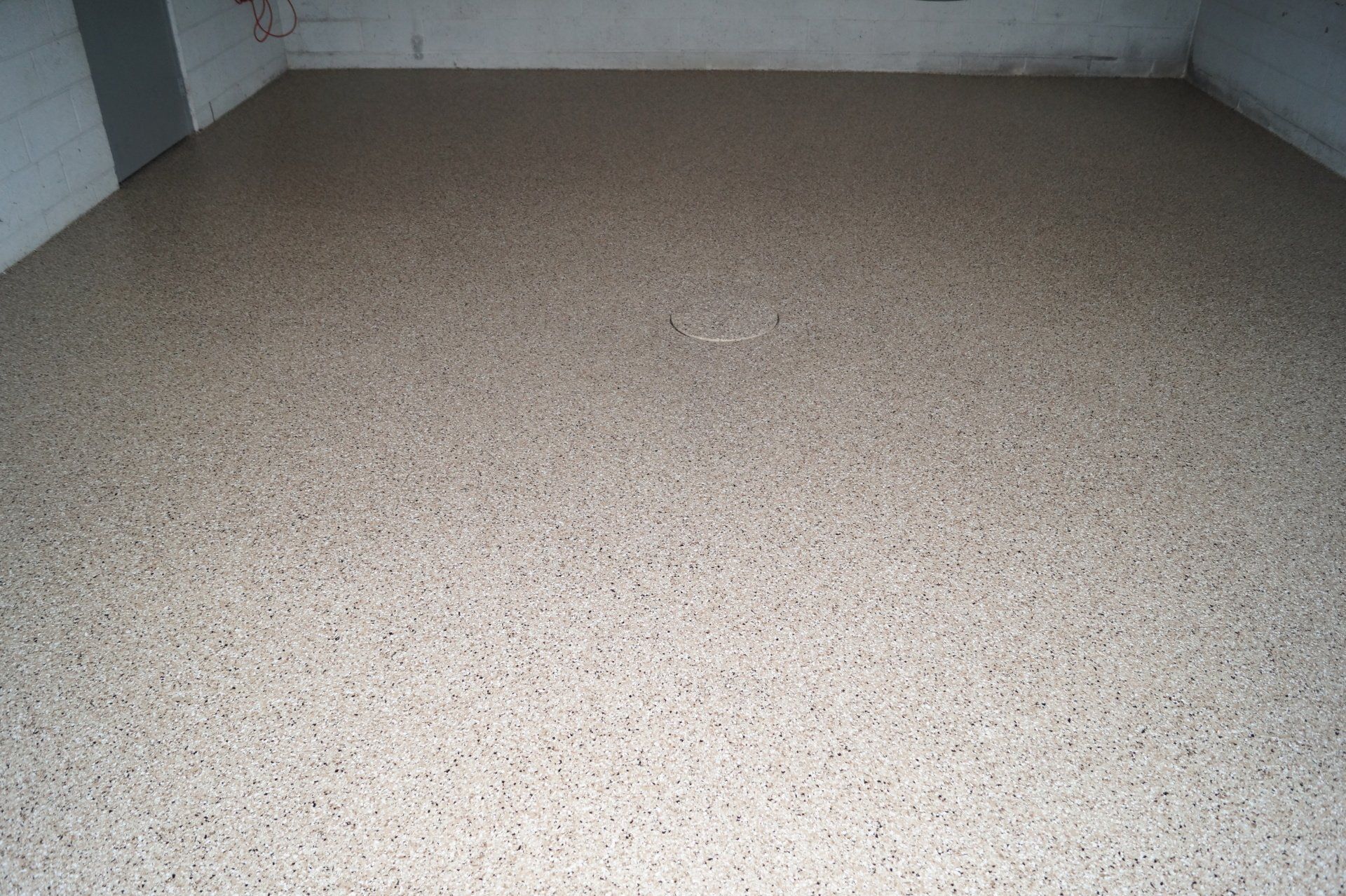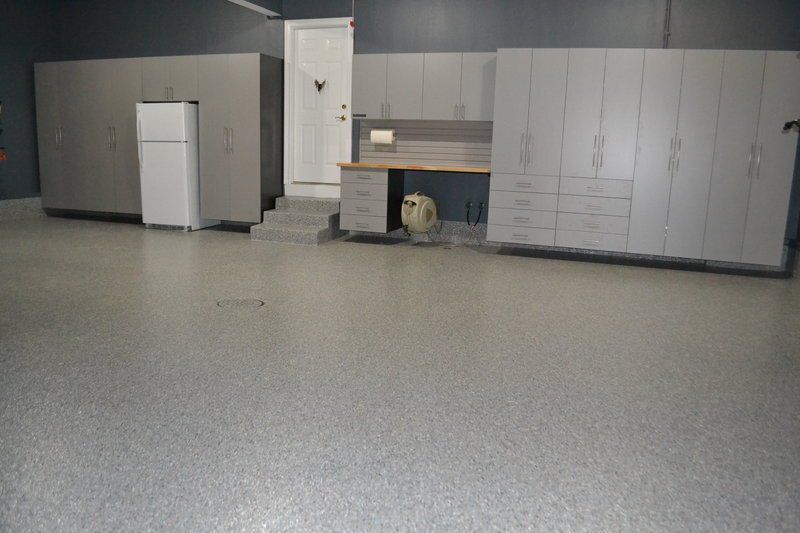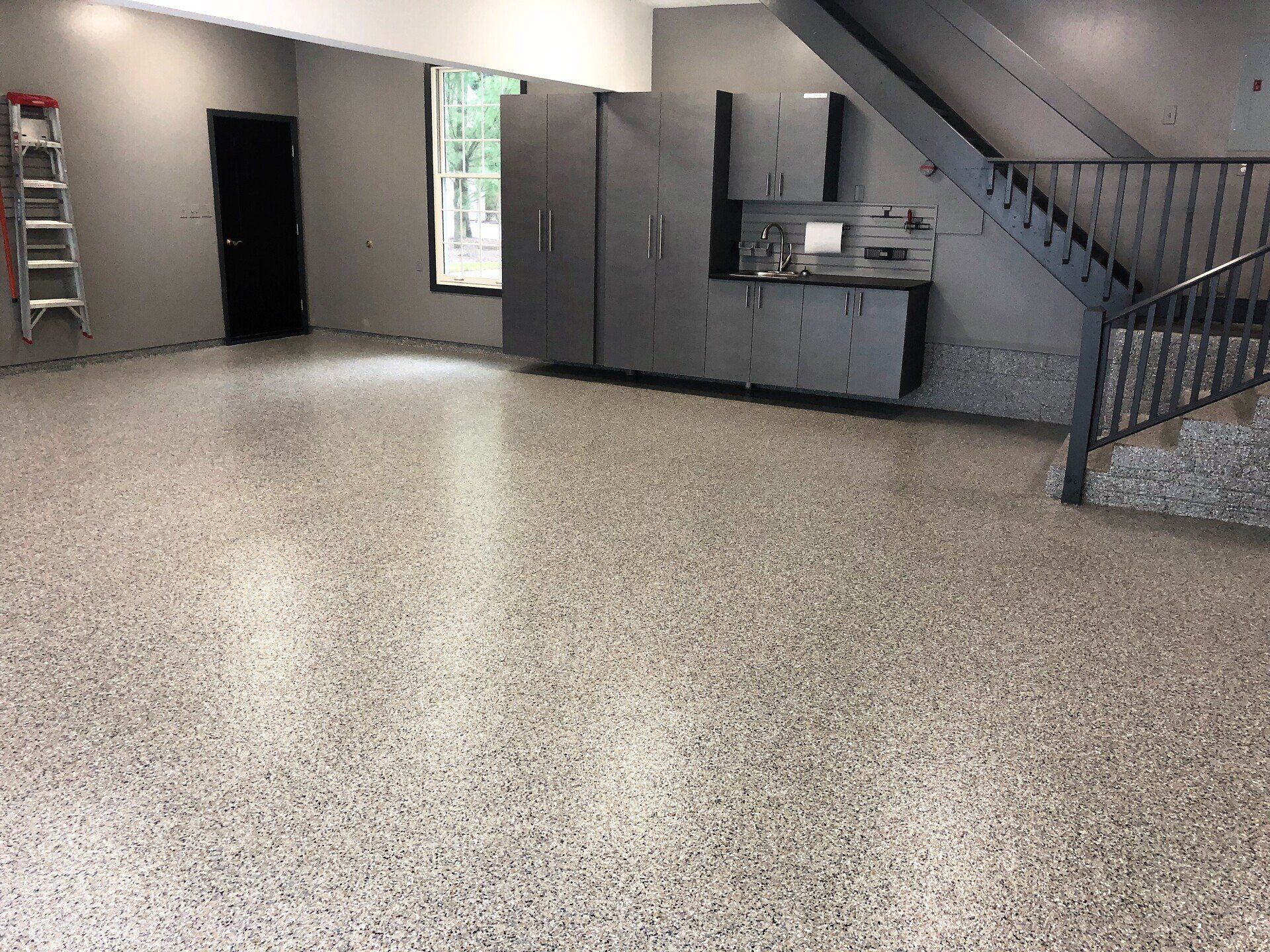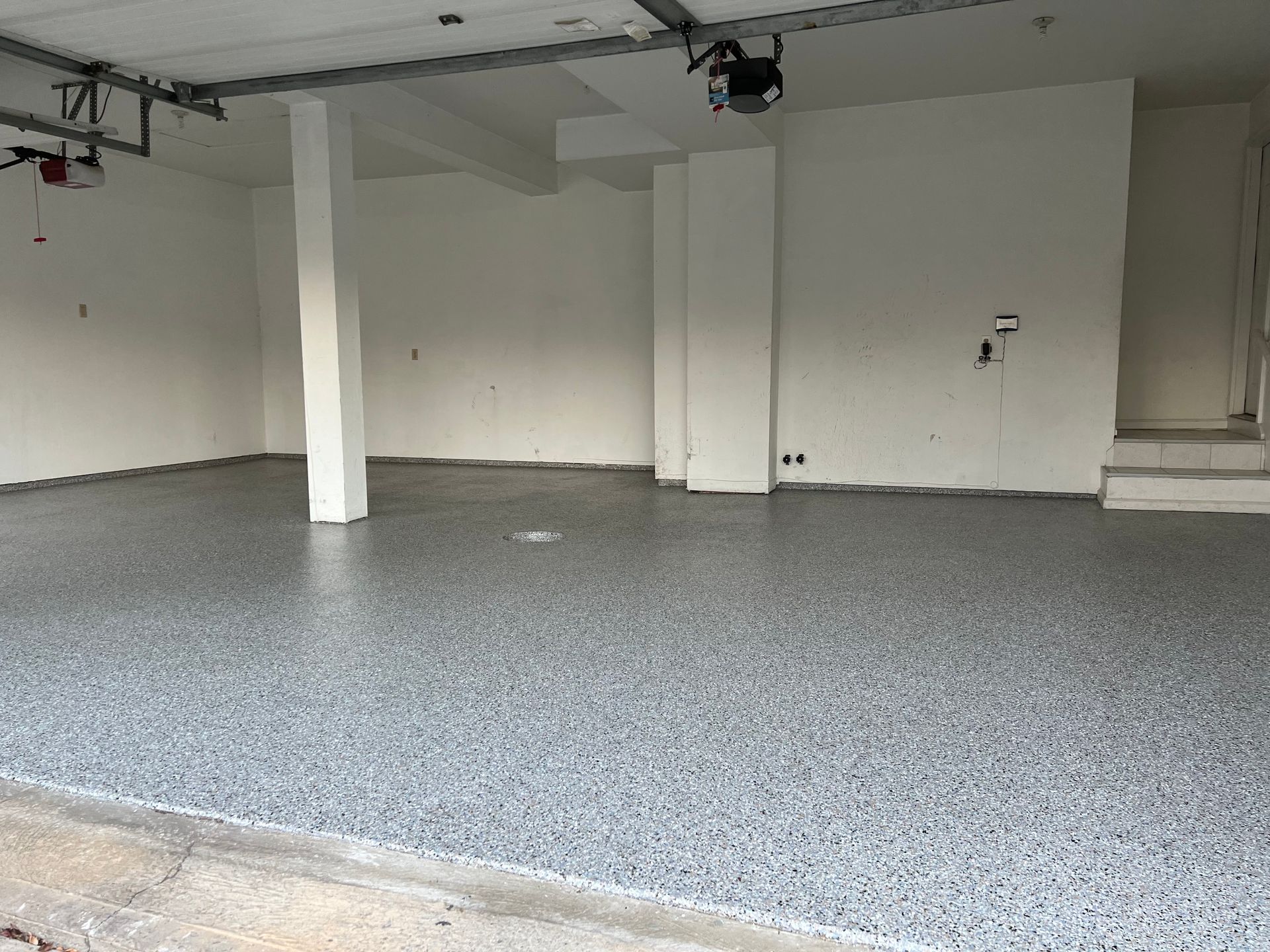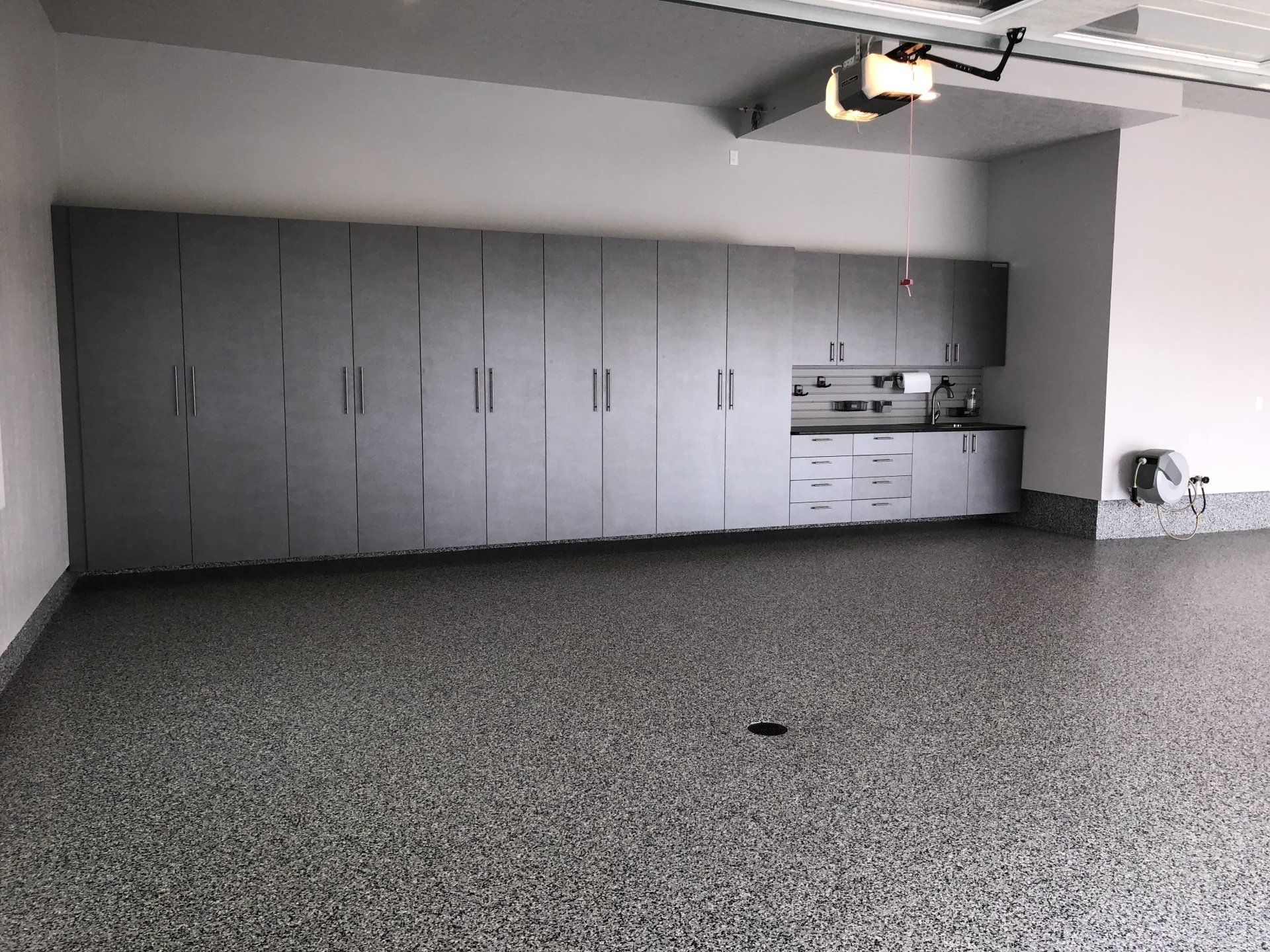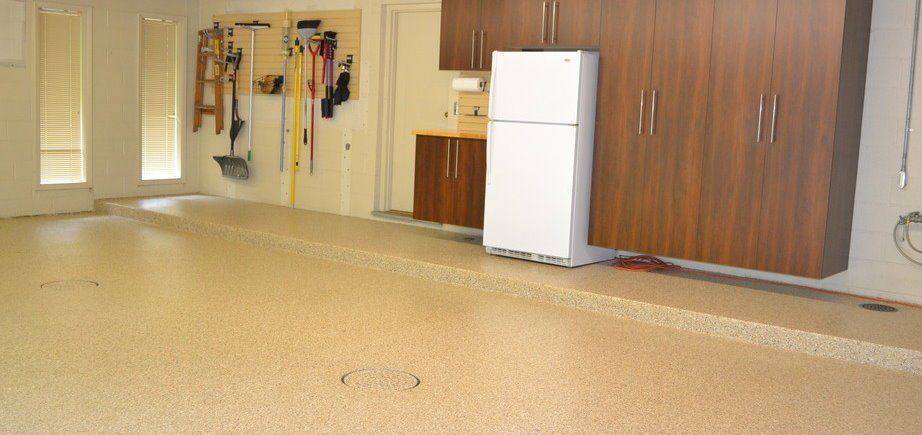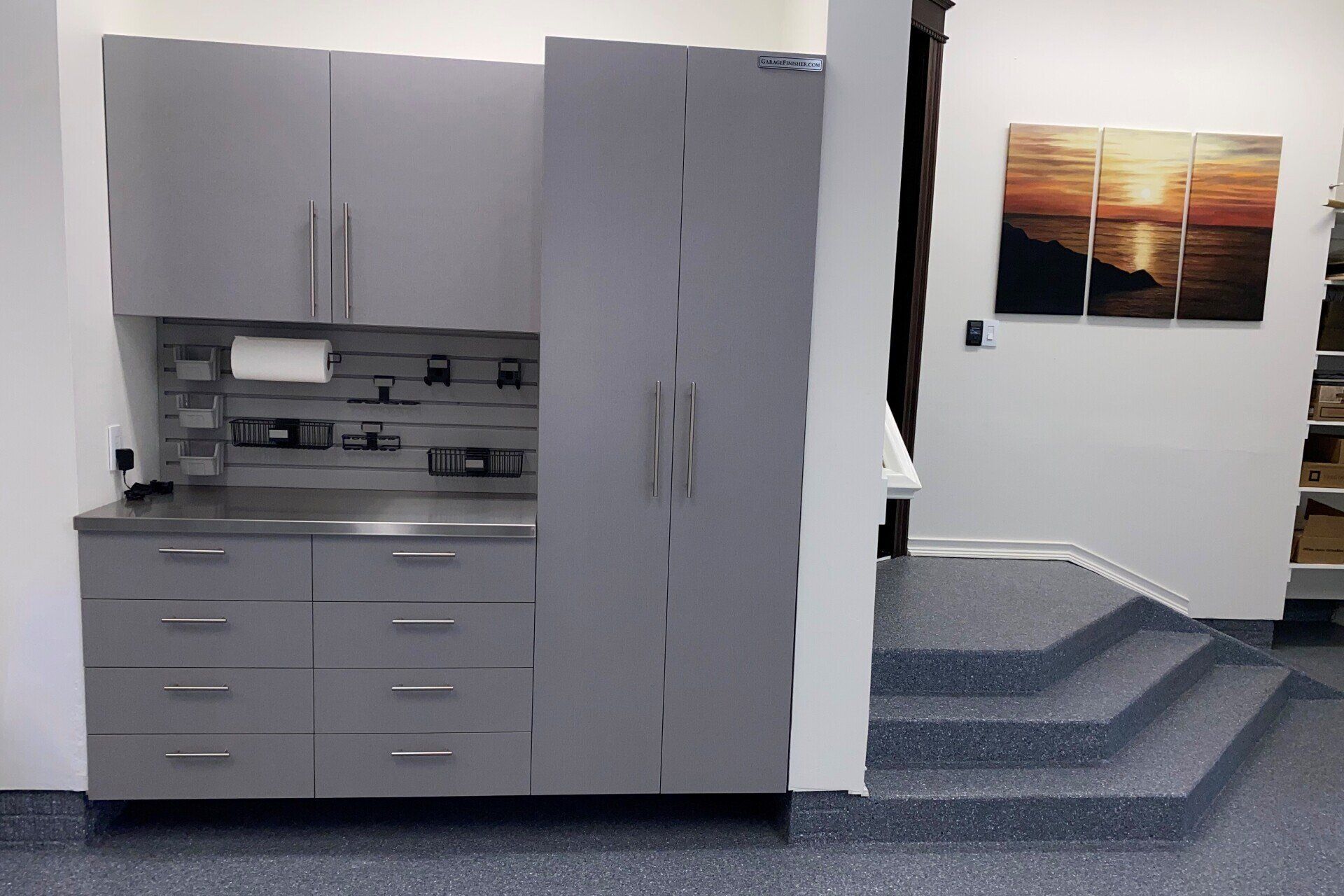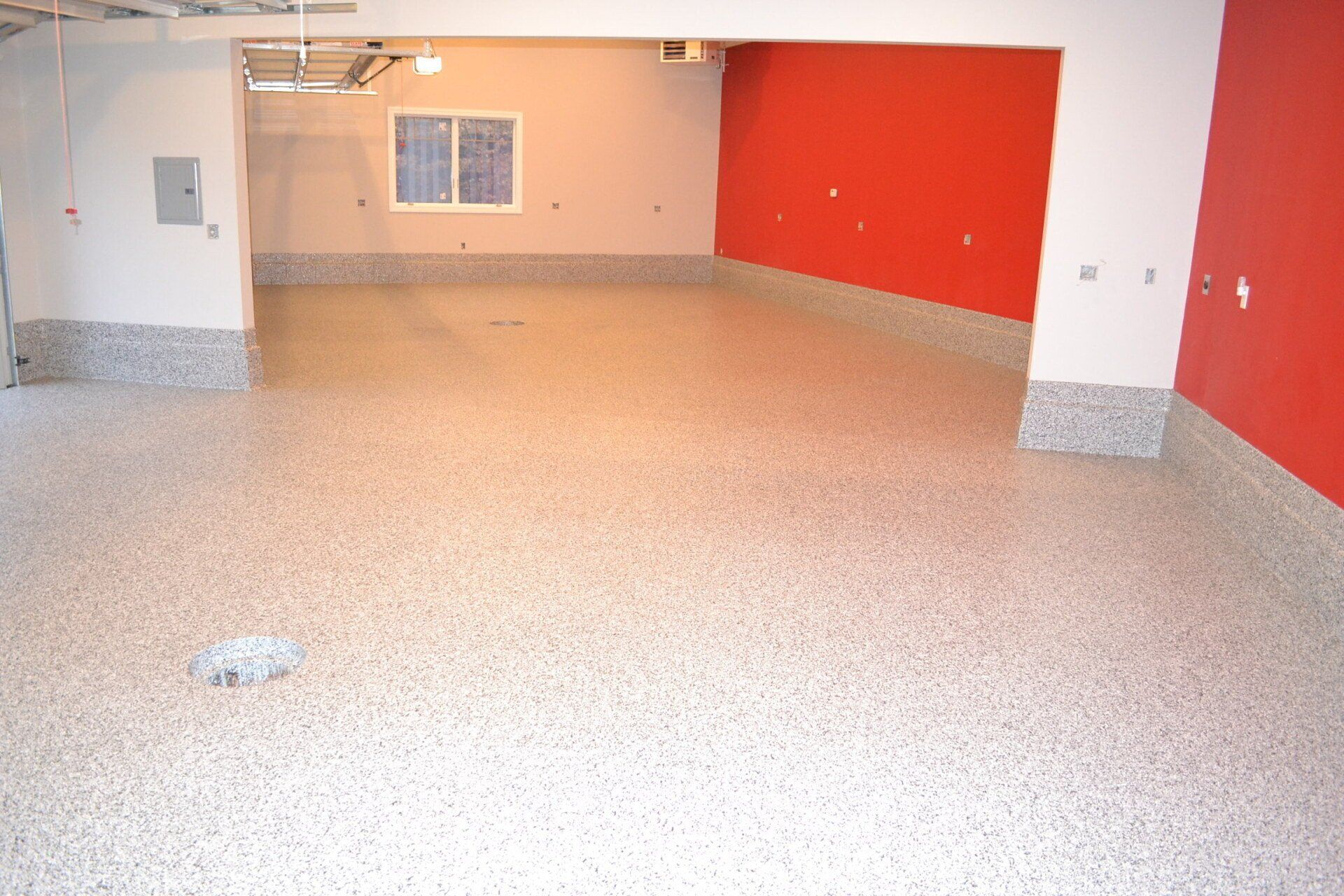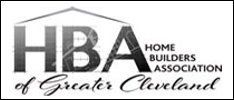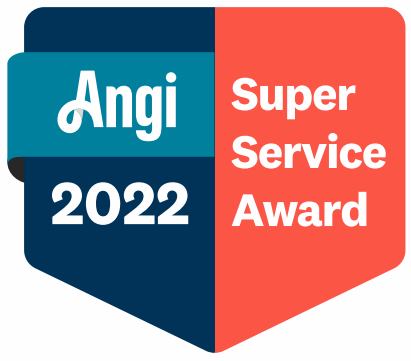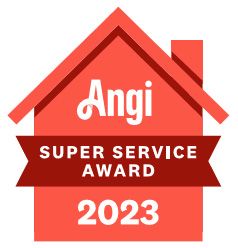Resurfacing Your Garage Floor? Here's Everything You Need to Know!
Most of the time, when a garage floor is first installed, it's simply a plain slab of concrete. This should not be considered a permanent option - particularly if your garage is going to see a lot of use. By itself, concrete is not a good enough surface for garages, and the problems with it will quickly become apparent. That's why it's a good idea for any home or business to resurface their garage floors.
Resurfacing is an affordable process that greatly extends the lifespan of your concrete floor, prevents damage and stains, and even reduces your maintenance costs. So, in this article, we'll be talking about why you shouldn't leave your garage floor unfinished and go over your options for resurfacing.
Resurfacing is an Affordable Process
I. Why Resurface a Garage Floor
So, to start with, why is it so important to refinish a garage floor? There are many reasons.
1. Concrete is brittle
While reasonably strong as a material, concrete has one big disadvantage. It's brittle, and extremely easy to damage. Falling objects, and has erosion from frequent use along with road salt dripping off the cars. This can weaken the concrete and lead to cracking and pitting.
Once a concrete floor begins cracking, it's difficult to repair. You generally have to cut a rectangle around the crack, remove the entire area, and then pour in a new batch of concrete. This will inevitably leave a visible patch as well. It's never seamless.
2. Concrete is porous and easily stained
Because concrete is porous, it will suck up any spilled liquid like a sponge - which inevitably leads to staining. Every drop of oil spilled on a concrete floor, for example, will probably stay there for the life of the slab. This is true for any other liquid that might spill on it, as well leaving a very spotty appearance to your garage floor.
3. Concrete is vulnerable to temperature changes
Another threat to concrete is temperature. Concrete expands in heat, and contracts in cold, which encourages cracking. In addition, any water or humidity that's gotten into the concrete will freeze in sufficiently cold temperatures. Since water expands when it freezes, this too can cause cracks to form.
Cracking, of course, isn't merely unsightly. It's dangerous; presenting a tripping hazard for people walking on it.
4. Concrete is ugly
Not everyone cares about the aesthetics of their garage - but if you do, we don't need to tell you how unattractive basic concrete becomes as soon as you start using it; it only gets uglier as it picks up more and more stains, pitting, dust and cracks.
In short: Concrete just isn't a good garage flooring material on its own. It's easily damaged and extremely difficult to clean, as well as being high maintenance in general. Paying to have your garage floor resurfaced is an excellent investment that will justify itself for many years to come.
II. Your Garage Floor Resurfacing Options
When it comes to resurfacing or finishing your garage floor, there are several solutions depending on what you're looking for. Polishing the concrete is an option, although most opt to coat their garage floor in a resinous material instead.
Polished Concrete
This involves taking industrial-grade grinders to the floor and smoothing out the surface until it appears polished and even mirror-like, similar to finished stonework. This is one of the more inexpensive options, and it definitely improves the looks of the concrete. In addition, polished concrete floors are easier to clean and not quite as prone to staining.
However, this does little to solve the underlying problems with concrete. It will still be prone to cracking and still react badly to road salt and temperature changes. In addition, while it is less vulnerable to staining, it remains porous on a microscopic level. Stains will still set in if they aren't cleaned quickly.
Polished concrete is typically only useful in low-traffic areas, and is often seen in schools, offices, and industrial environments for low-cost pedestrian flooring. This high shine of a polished floor also makes it slippery when wet so not a good idea for a garage floor.
Resinous Coatings
In most cases, the better option is to choose a resinous coating to go on top of the concrete. The resin starts as a liquid, which is sprayed or poured onto the concrete, and then allowed to spread across the entire surface edge-to-edge. Once hardened, it creates a single seamless surface. This method of resurfacing garage floors creates a vastly stronger surface, which is also extremely resistant to major cracks and stains. This means it's lower maintenance as well. Most resinous coatings will be a huge improvement over basic concrete.
There are a few different types of resinous coating to consider.
Epoxy is an often used option, providing "good enough" strength and durability. However, epoxy is also the most flawed of the coating options. It becomes more brittle over time, and it's vulnerable to damage from UV light exposure - i.e., sunlight - as well as reacting badly to many chemicals such as acids. In addition, it's slow to harden, typically taking 3-4 days to be usable.
Methyl Methacrylate (MMA) is another popular option, being basically a type of rubber. While not quite as strong as epoxy, it's much more resilient and more resistant to damage from falling objects. In addition, MMA is more resistant to chemicals. However, the real benefit of MMA is its cold-weather resistance. MMA flooring can be installed in even sub-freezing temperatures and is a popular choice in extremely cold areas, or for rooms that need to be kept at low temperatures.
Polyurethane was the only other major type of garage floor coating, until recently. This is a plastic-based resin with excellent chemical and UV resistance and found a lot of use in garages and other areas that receive direct sunlight. However, it is a bit less strong than the other options and may not last as long once installed.
Finally, there's the newest type of garage resurfacing material: polyaspartic coating. Polyaspartic floors are an evolution of polyurethane blends first introduced in the 1990s, making for a true best-of-all-worlds solution for nearly all garage flooring situations. Today, more and more homeowners and businesses are choosing polyaspartic flooring when they resurface garage floors.
III. The Benefits of Polyaspartic Coatings
Polyaspartic coatings provide nearly everything you could want from a concrete coating.
Polyaspartic floors are:
· Strong. Polyaspartic flooring is currently THE strongest material you can use to coat a concrete slab, capable of holding up large weights - and without being brittle. Properly formulated, a polyaspartic floor can last for the entire lifespan of your garage.
· Highly resistant. There are very few substances capable of damaging a polyaspartic floor. There's no fear of it being damaged by oil, greases, or even mild acids such as pool acid. It's fully UV-resistant as well.
· Fast Installation. Polyaspartic blends are among the fastest types of resinous floor coating to harden, typically taking less than a day. In most situations, you could have the coating installed in one day, and it'll be ready to use by the next morning.
· Beautiful. While you could have a very basic coating of polyaspartic material, it allows for much more creative installations. Polyaspartic flooring can be done in layers, with decorative elements embedded within. For example, you could sandwich a layer of chips within the polyaspartic floor coatings, giving it a look similar to granite.
Garage Finishers Brings the Best in Garage Resurfacing to Northeast Ohio
If you want the absolute best in garage finishing in Northeast Ohio, look no further than Garage Finisher. Our own custom Forever Floor polyaspartic blend is the strongest and longest-lasting garage resurfacing material on the market. We use a five-layer process which ensures the floor is impervious to damage, easy to clean, and looks great as well! Then we back the best floor with the best Lifetime Warranty available anywhere.
If it's time to resurface your garage floor, contact Garage Finisher to make it happen!
